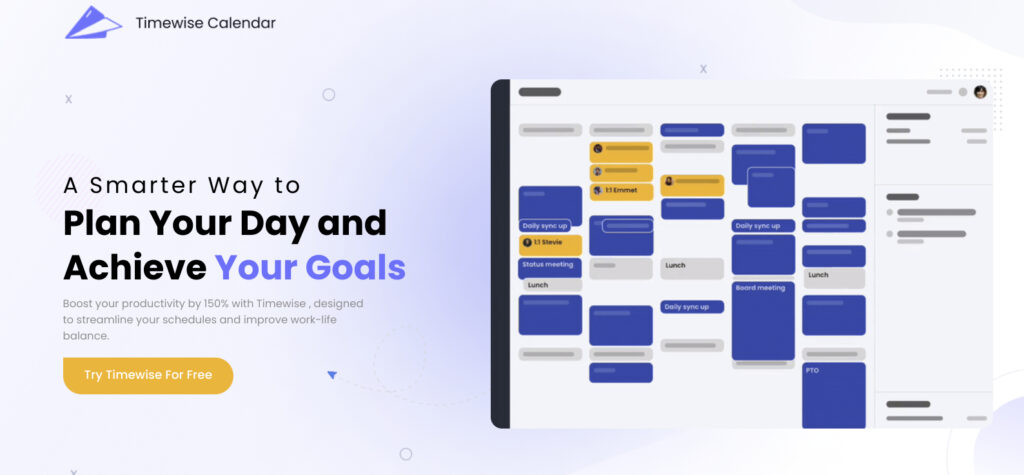How Does Procrastination Affect Your Time Management

In a small, musty boardroom somewhere in corporate America, a secret meeting is being held. It’s not the kind of meeting you ‘pencil’ into your calendar because you don’t want anyone else to know about it. Inside, a large group of people sit in a circle, staring nervously at each other.
Eventually, someone gets up and says, “Hi, I’m John. I have a problem. At first, it was harmless – a few mundane tasks pushed to the bottom of the list. Then, it started to involve bigger tasks. I would leave them to pile up until the pressure was really on, then I would push through an all-nighter to do them. After a while, this became the norm. Eventually, I was hardly doing anything productive during the day. Then came the angry emails from my manager and co-workers about missed deadlines. That’s when I knew – it was bad”.
As John took his seat, the group applauded his courage. He had admitted what others were still trying to hide – he was a BIG procrastinator!
Anyone who has ever struggled with the problem of overcoming procrastination would find John’s story all too familiar. Procrastination leads to decreased productivity, increased stress and a vicious cycle of playing ‘catch-up’. In this article, I’ll tell you what I figured out about procrastination, the emotional and psychological factors that affect it, and how you can recover from this modern time killer.
How does procrastination affect your everyday life?
At first, procrastination seems to be nothing more than a time management or even a motivation problem. It can actually seem like a good strategy for taking a time out when you feel overwhelmed, but then it becomes something that you have to fight every day.
According to one website, solvingprocrastination.com, it occurs when your drive to delay something is irrationally stronger than your drive to act. The person knows that procrastination affects them negatively, but their self-control and motivation are affected by psychological factors such as:
- Difficulty eliminating distractions
- Exhaustion
- Chronic stress
- Negative feelings
- Overwhelmed with the volume and difficulty of tasks
- Unrealistic goals or expectations
In short, people prioritize short-term unpleasant feelings about tasks or projects, risking the long-term outcome. This, in turn, leads to more unpleasant feelings about time management, competence, and missed deadlines. It becomes a vicious cycle you must escape to reclaim your productivity.
How does procrastination affect your performance?

In teams, this problem is multiplied. Two or more team members who are delaying tasks and not able to meet deadlines soon begin to affect the whole team. Managers observe behavior like constant talking about topics unrelated to work, team members hanging around each other’s desks, chatting for prolonged periods, and numerous coffee room breaks. Another sure sign is chair ‘slouching’, long stares off into space, and constant scrolling through mobile phones. If you thought this was a well-infected team – that is, with the procrastination virus – you would be right!
What can be done about procrastination?
The good news is: You can break free of this time gobbling habit. Firstly, you’ll have to admit that it’s a problem. Just like John, you’ll have to take two steps back and see what this habit is actually doing to your valuable time and well-being. Secondly, exercise some self compassion by recognizing that everyone gets into this rut at least once in their lives. Next, you’ll have to put some strategies in place for dealing with the factors we listed above, and get to the bottom of them. And lastly, you can make friends with an intuitive calendar scheduling tool that will take a lot of the stress out of managing your schedule.
You can overcome procrastination and stop it from affecting your time management! So, whether it’s a team or an individual challenge, let’s tell you how to fix it.
Beat procrastination: Manageable steps to enhanced productivity
1. Admit you are procrastinating
This is an important step in conquering poor time management. You can’t deal with what you don’t acknowledge. Call it by its name, then you can face it head on.
Next, take some time to write down all the ways in which this has negatively affected your well being, your team, your workplace, your success. Whatever area of your life that it has touched, get it down on paper. You can do this any way you want, but just spend 5 minutes writing it all down.
This can include delaying important tasks, missed opportunities, feeling guilty, missing deadlines, low self-esteem, etc. You can make your own list of the negative impact it is having.
Once you’re done, take a good look at what you’ve written. Ask yourself: Are these negative consequences really better for my overall well being? Often, we can keep doing something because we believe it’s better than the original problem we didn’t want to face. This way, you can see that it isn’t, and move on.
2. Don’t beat yourself (or the team) up about this

There are things that are helpful for overcoming problems, and being overly hard on yourself for getting into a cycle of procrastination is not one of them. It will serve no purpose other than to increase your negative feelings. So, let’s chuck this one out right away. Everyone has dealt with this problem at some time and has overcome it. That’s encouraging because it means millions of other workers have learned how to stop procrastinating.
3. Tackle the factors that have led to the procrastination problem
Exhaustion
Breaking free from this time thief requires you to tackle the reasons it became an option for you in the first place. Let’s say it’s because you’re exhausted. Perhaps you don’t sleep well and need to review those habits so that you are mentally and physically alert and able to tackle important tasks. Studies have also shown that a lack of sleep can lead to negative emotions and self doubt. [1]
Chronic stress
You may be suffering from chronic stress, as many people do in modern workplaces. Some stress is needed for productivity; this is called positive stress and gives you the motivation you need to get tasks done. However, when it continues for a prolonged period and is combined with negative outcomes, not enough time to relax, and a lack of positive stress management, it can have a debilitating effect. In this case, cognitive behavioral therapy or other suitable therapies can help you work through these issues.
Feeling overwhelmed by difficult tasks
When you’re feeling like your to-do list is beyond your skill level, the only way to deal with it is to get some help. There are a number of factors that influence your ability to complete tasks, and it can be anything from a lack of skills, resources, and equipment to a lack of direct communication. Don’t use procrastination as a strategy here because leaving the task while you really need skills or resources, etc, will only make the problem worse. Discussing this with your team manager will build honesty, transparency, and open communication.
Unrealistic goals and expectations
Sadly, this, more often than not, leads people to procrastinate. Perfectionism can be a mountain you create for yourself to climb. When you can’t cope with the climb, it can feel easier to give yourself a breather and think about how you will tackle things. But this breather can quickly turn into opportunities to avoid your tasks.
If perfectionism is behind the delays, you will need to look at setting more realistic goals. Get the old pen and paper out again, and scribble down what pushing yourself too hard is doing to your general well being. Perhaps you want to build self confidence by proving you can take on more? Then ask: Has this actually led to improved productivity?
If the goals have been set for you, then an open and honest talk with your manager could easily prevent procrastination.
4. Time management strategies

The Pomodoro technique
Pomodoro is a hugely popular time management method developed by a software developer, Francesco Cirillo, in the early 90’s. He was having trouble with his studies, so he decided to break tasks up into more manageable chunks by concentrating on them for 25 minutes at a time.
During this time he would eliminate distractions by turning off the phone and the TV, and let everyone know that he was not available for 25 minutes. After the time was up, he would take a five minute break, and then start again, breaking tasks up into small chunks for more effective time management.
After three or four Pomodoro’s, he would take a longer break of 30 minutes, allowing himself the time to process what he had studied. This technique has since been used in schools, universities, workplaces, and anywhere that focus concentration is required.
The reason it works so well is psychological. Everyone can commit to short bursts of activity if they know there is a reward at the end (a short break). It helps the mind feel energized to use time effectively and create a mini challenge that you feel confident about completing. Every time you finish a Pomodoro, you feel more confident about your time management skills.
Time blocking method
Similar to the Pomodoro technique, this method is about planning out your day by blocking time in your calendar for everything you want to focus on. It reduces the mental strain of figuring out how to prioritize tasks as you go, and helps you avoid doing things in a last minute rush.
For example, you would schedule time for meetings, reading emails, tasks that require concentration, and also some breaks and ‘buffer periods’. The buffer periods provide some flexibility in your schedule so you’re not just going from one thing to the next for 8 hours or more. This method requires quite a bit of self-discipline because you have to stop the previous task when the time for the next one comes. It may not work for everyone, but don’t be fooled into thinking it’s not complicated enough to be effective.
Time blocking is actually the methodology that drives the calendar scheduling apps that have revolutionized how people work. Which brings me to our final step for overcoming procrastination.
5. Use an automated AI-driven time management app
This is the secret weapon in our fight against the modern time killer – procrastination. By tackling all the problems we’ve discussed, using innovative AI technology, a time management app pulls everything together and takes the stress off you by managing the strategies you need to kick this nasty habit forever.
Let me introduce you to one of these apps called Timewise Calendar.

Timewise Calendar cleverly solves most of the problems that lead to procrastination. By using AI technology that learns when and how you like to do tasks, it automatically schedules works according to your preferences. It also does a whole bunch of other cool stuff, which we can take a look at next.
| Problem leading procrastination | Timewise solves it by: |
| Unrealistic goals | Seamlessly align your daily tasks with long-term objectives using our Intelligent Goal Integration feature. This ensures every action taken is a step towards achieving your business milestones, enhancing productivity and maintaining a balanced workflow. This provides mental clarity, leading to a more focused mindset, increased motivation, and self-esteem as you see progress. |
| Feeling overwhelmed by too many or difficult tasks | Automatically reschedules missed tasks and adjusts for new, unplanned events, keeping your project timelines intact. Identifies the best times for specific tasks and suggests optimal break periods, leading to enhanced efficiency and effectiveness. This reduces stress by providing a reliable, adaptive schedule, allowing you to remain focused and calm. |
| An all-over-the-place schedule, with too many conflicting tasks and appointments, leading to stress | Proactively identifies and resolves scheduling conflicts. AI suggests the best alternative timings based on user/team priorities and past scheduling preferences. This enhances overall job satisfaction and reduces anxiety by maintaining a well-organized schedule. |
| Diving into the procrastination cycle | Helping you build and maintain positive habits by tracking your progress and providing gentle reminders to stay consistent. It provides insights into habit formation, helping you identify and focus on the most impactful habits for your goals, keeping you from entering a cycle of procrastination. |
If you’re really serious about breaking out of this destructive habit, then Timewise Calendar can help you accomplish this. The app has many more features that will act as your personal productivity coach, whipping your life and your schedule together in one neatly packaged platform. It also works for both individuals and teams, so no one is left out.
Everyone can benefit from using Timewise Calendar to drive the strategies and techniques that will reduce procrastination.
And next thing you know
You’re no longer meeting with the support group in a musty boardroom because you’re all at your desks, taking on your daily tasks and winning at life!
No more, “Hi, I’m John and I have a problem.” Just the sweet smell of success as you and your teammates work seamlessly through complex projects, handling challenges like champs. All thanks to these techniques and a neat little secret weapon called Timewise Calendar.
References:
Launch Today
Ready to elevate your game?
Start your 14-day free trial today.
Take control of your schedule and increase your efficiency. Timewise Calendar helps you manage your tasks effortlessly, so you can focus on what matters most.
